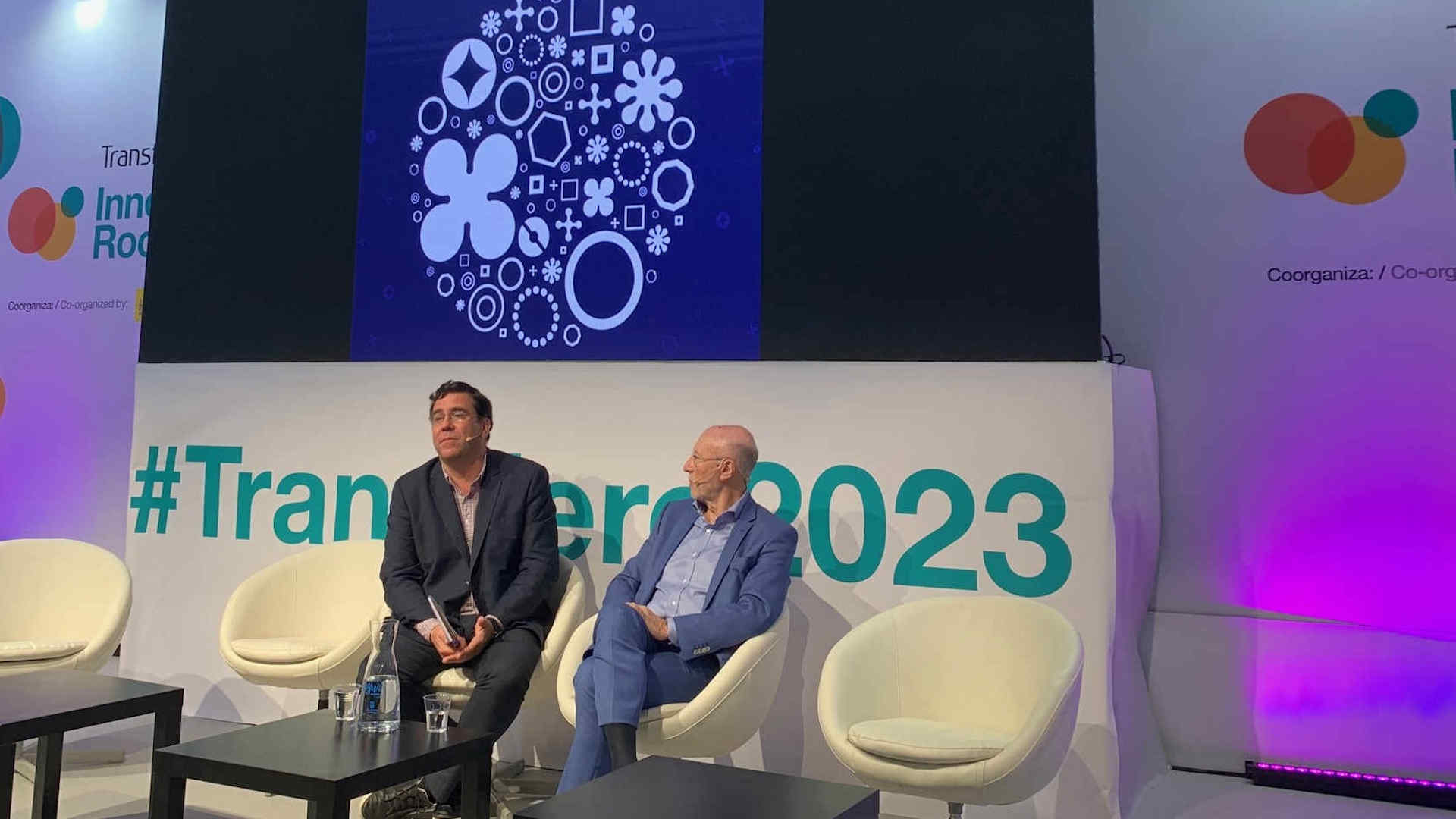
The Transfiere Forum held at the Palacio de Congresos y Ferias de Málaga, the largest annual meeting of the Spanish R&D and technology transfer ecosystem, hosted the presentation of the INTEC 2022 report "Ten Emerging Technologies to Boost Spain", an initiative of the Science and Society Chair of the Rafael del Pino Foundation, led by the professor at the University of Alicante and president of IUPACJavier García Martínez.
The session consisted of a conversation between Eugenio Mallol, journalist specialising in innovation and analyst of the Chair, and Francisco Marín, National Innovation Award 2020, member of the Forum of Innovative Companies and vice-president of the CEOE's R&D commission.
The INTEC 2022 report is a reference document for strategic decision-making in the social and economic sphere in our country. The experts involved in its preparation are the scientists María José Alonso, Pablo Artal, María Blasco, Lina Gálvez, Laura Lechuga, Nuria Oliver, Manuel de León, Susana Marcos, María Ángela Nieto and Andrés Pedreño, as well as the business professionals Héctor Perea, Emma Fernández and Fernando Temprano.
They all provide their views on ten emerging technologies in which Spain can occupy leading positions with the right planning, either because it has a solid scientific base, or because these technologies are in their infancy and there are as yet no barriers to entry that would hinder the entry of new players.
Eugenio Mallol was in charge of reviewing the ten emerging technologies highlighted in the latest edition of the report: the search for new solutions for the detection and fight against antibiotic-resistant bacteria; the identification of abundant materials that can perform the same functions that are now assumed by other materials that are scarcer or more complicated to obtain; and the promotion of theranostic therapies that combine the detection of a disease with its intelligent treatment would be the first three.
Alongside these, INTEC 2022 is also committed to technologies linked to the Metaverse, especially virtual, augmented and mixed reality and the digital twin, as well as nano-encapsulated and controlled-release smart fertilisers; new mobility, electrified and based on algorithms; swarm and soft robotics; the mathematics of sustainability, which help combat climate change with prediction, monitoring and smart actions; and the tourism of things, which help combat climate change with prediction, monitoring and smart actions; swarm and soft robotics; sustainability mathematics, helping to combat climate change with prediction, monitoring and smart actions; CO2 capture and reuse technologies; and the tourism of things, integrating the main enablers of the digital revolution.
In the conversation that followed, Francisco Marín highlighted the importance of combining improvements in governance in Spain with regulation that is better adapted to the pace of innovation in order to promote the incorporation of our ecosystem into emerging technologies. One of the proposals he is promoting, in this sense, is the creation of a committee of experts in our country, although its effectiveness will depend on its capacity to overlap with political action.
With regard to the leadership position that Europe must play, which occupies leading positions in many scientific areas included in INTEC 2022, but fails to transfer this knowledge to the market, Francisco Marín and Eugenio Mallol highlighted the potential of the new European Innovation Agenda promoted by the Commission. It maintains the commitment to the transformative power of funds, as demonstrated by the Next Generation, and supports measures to change the production model.


